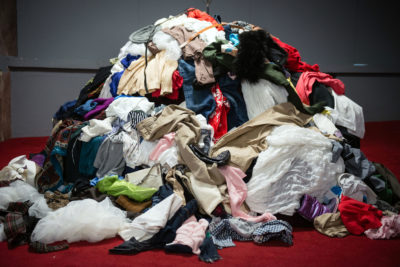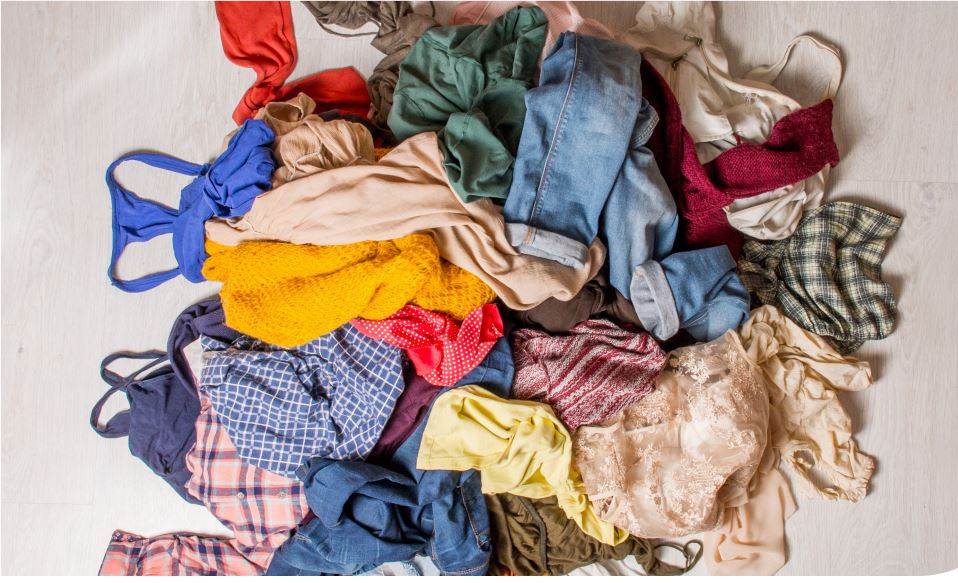Existing structures cannot collect the extra clothing and local authorities are in an ideal position to do this
Gerald Cemmell, president, TRA
Speaking to letsrecycle.com as he nears the end of a “busy” first year at the helm of the trade body, Mr Cemmell also called on the new coalition government to address the issue of theft from textile banks and door-to-door collections with harsher punishments for perpetrators.
And, he said he expected a “considerable proportion” of TRA's time for the rest of 2010 would be spent dealing with international issues, such as European work to develop criteria defining when waste textiles cease to be waste.
Looking at the role that councils could play in textile recycling, Mr Cemmell highlighted the fact that around two million tonnes of new clothing and textiles are sold ever year but just over 500,000 tonnes of material is collected.
“Existing structures cannot collect the extra clothing and local authorities are in an ideal position to do this,” he said. “Local authorities could develop innovative partnerships with collectors and a portfolio of charities which would enable the local authorities to raise funds on behalf of a range of good issues.”
Mr Cemmell stressed that door-to-door collections did not affect direct donations to charity shops “in any meaningful way”, and instead captured material that would otherwise be sent to landfill or remain in homes unused.
“The other thing to bear in mind is that less than 1% of the UK's 200,000 charities have shops and if local authorities develop collection systems it could open up a whole new fundraising stream for many charities,” he added.
Source-separated
However, Mr Cemmell said that when textiles are collected, source-separated collections were the “only viable way forward”, explaining that “I do not think anyone would be prepared to buy/wear clothes that have been collected alongside drinks cans, food, dirty old newspapers etc.”
His comments echo the conclusions of the Oakdene Hollins report published earlier this year as part of Defra's 'Sustainable Clothing Roadmap', which backed a greater role for councils in collecting textiles but warned of the issues associated with commingled collections, such as contamination (see letsrecycle.com story).
New government
In terms of his hopes for the new Conservative-Liberal Democrat coalition government, Mr Cemmell revealed that a particular priority for the TRA would be to look for tougher penalties against those involved in theft of textiles.
“Millions of pounds worth of goods are stolen and the costs of repairing or replacing damaged banks can be huge. Many police forces to do not see this as a serious crime – if they see it as a crime at all – and if a prosecution is secured, the perpetrators normally just get a slap on the wrists,” he said.
“We would like the new Government to address these issues. If an individual or business steals many thousands of pounds in cash from any second party, they can expect to be dealt with severely by the courts. Stealing clothes is no different,” he added.
Mr Cemmell also called on the new government to bring in policies that support small and medium enterprises (SMEs), highlighting that, with textile recycling being labour-intensive, support through taxation and a freeze on the minimum wage was “essential”.
End-of-waste
With textiles identified as a priority material in the revised Waste Framework Directive for the development of criteria defining exactly when it ceases to be a waste – and is therefore no longer subject to waste regulation (see letsrecycle.com story) – Mr Cemmell identified Europe as an area of focus for the TRA, in particular by working with the Bureau of International Recycling.
“Our European colleagues are very keen to find out what is happening in the UK with regards to government policy and with MEPs set to decide an EU definition of when textiles cease to become waste,” he said.
“I anticipate that a considerable proportion of the TRA's time will be spent dealing with international issues later this year,” he added.
Standards
Mr Cemmell also emphasised the work the TRA was doing to raise the professional standards of textile collectors to make charities, councils and retailers sure they were dealing with legitimate collectors.
As well as outlining changes to the criteria for aspiring new members of the TRA which mean they have to show that they fulfil requirements regarded as “good industry practice”, Mr Cemmell revealed that the association was also involved in developing a new code for door-to-door collections by charity.
“We have been busy helping to develop the Institute of Fundraising's code for charitable door to door clothing collections which we hope will be available for public consultation soon and which should formally be adopted by the end of the year,” he explained.
Market
Looking at the textile recycling sector's future prospects, Mr Cemmell acknowledged they were “difficult to predict”, but did note that recessions “usually” lead to an increase in demand for used clothing, as well as potentially a fall in the supply of textiles as people buy less new clothing and textiles.
While also labelling currency fluctuations an “unknown”, he said: “If the Euro runs into trouble because of the situation in Greece etc. then this could make UK clothing less competitive as prices would be comparatively higher.
“But uncertainty over how stable the new coalition government is in the UK has brought jitters to the value of the British pound, particularly against the US dollar. The pound is currently at its lowest level against the US$ in over a year, making UK goods relatively cheap,” he added.











Subscribe for free